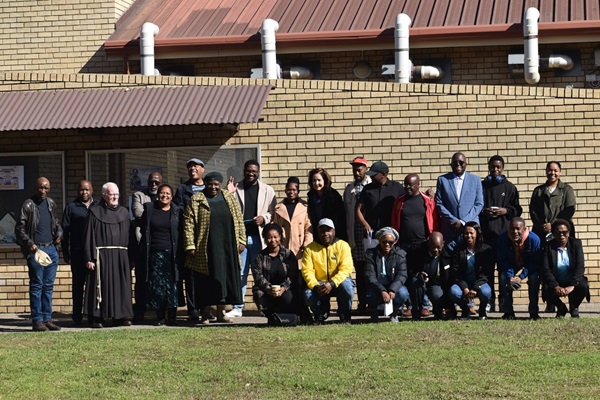In commemoration of History Month, the School of Social Sciences at the Vanderbijlpark Campus of the North-West University (NWU), in collaboration with its community partner, Vaal HiRAI, hosted a poignant community engagement seminar under the theme “Remembering Sharpeville”. Attended by 36 participants, the seminar served as a powerful reflection on the importance of historical memory and the role of public history in community identity.
The Sharpeville Massacre remains one of South Africa’s most significant and painful historical events. With this in mind, the seminar used Sharpeville as a case study to examine memorialisation, community history, and the importance of preserving local narratives.
“We wanted to highlight the importance of the memorialisation of public histories and the institutional role in preserving these narratives,” explained Ms Basetsana Tsuwane, History lecturer and one of the seminar organisers.
The event opened with a series of reflective presentations by three NWU alumni, who shared personal insights into Sharpeville’s history and its continued resonance in today’s society. These narratives underscored the necessity of safeguarding memory – not just through monuments, but through storytelling, education and dialogue.
The second half of the seminar featured a book discussion led by Father Patrick Noonan, a long-time community figure and social justice advocate. The discussion was followed by a screening of oral history interviews from the Southern Archives offering raw and moving testimonies from Sharpeville residents and survivors.
This session concluded with a presentation by NWU librarians, who showcased the ongoing efforts of the university in digitisation and open access, critical tools in ensuring that knowledge is not only preserved but made accessible to future generations.
In a creative closing gesture, Gilbert Maepa, a visual artist and MA candidate from the VUT, donated a piece of his artwork to one of the speakers, symbolising the role of art in historical healing and remembrance.
The audience included a wide range of stakeholders: teachers from Batloung Primary School, a scholar from the UWC, library officials from Sedibeng Municipality, bookshop owners, community leaders and members of the local clergy. This diverse gathering reflected the collaborative spirit the organisers hoped to foster.
One particularly moving moment arose during the Q&A session when schoolteachers challenged the NWU to take the lead and consider making History a compulsory module across all faculties to demonstrate the urgency of historical literacy in contemporary education.
“The seminar reminded us of our own positionality as educators and academics in shaping how history is remembered and taught,” noted Tsuwane.
Feedback from attendees was overwhelmingly positive, with many calling for more events like this in the future to deepen public engagement with local histories.
The seminar forms part of a broader initiative to embed community history within academic frameworks and public consciousness. By spotlighting Sharpeville, the event not only honoured the past but also sparked renewed commitment to collaborative historical preservation.
As the university continues its outreach and engagement activities, events like “Remembering Sharpeville” serve as a reminder that history is not just something to be studied – it is something to be lived, shared and safeguarded.

